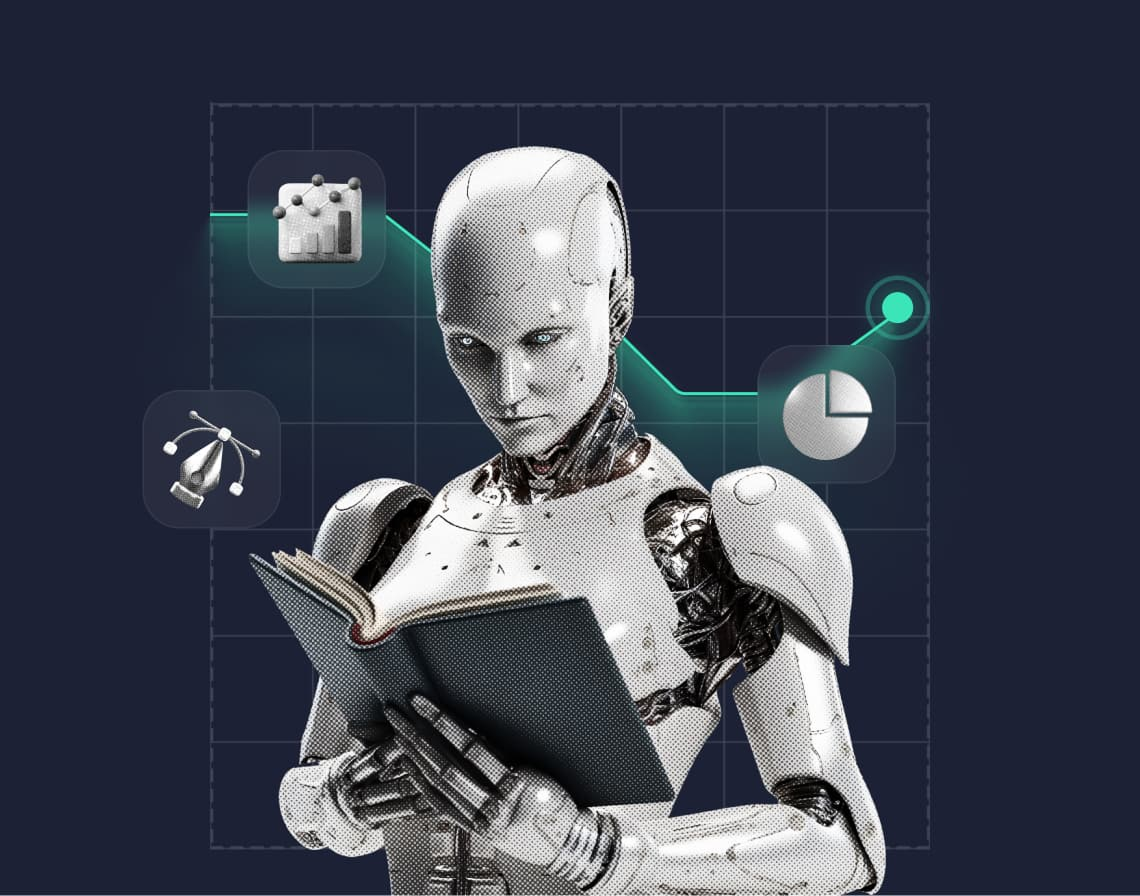5. Technical support staff
Bots cope with most typical requests. Trainable AI systems answer questions, solve problems, and escalate only complex cases.
Advertising
6. Template marketers
Creating advertising banners, selecting audiences, automating mailings — all this can be entrusted to AI. Creativity still requires a person, but not all tasks are creative.
7. Drivers and couriers
Autopilots, drones, and autonomous robots are already being tested in deliveries and transportation. Especially in logistics and intercity routes.
What professions are at risk of complete automation?
According to McKinsey and PwC, up to 40% of professions may be automated by 2035. At particular risk:
Cashiers
Secretaries
Financial analysts
HR recruiters (at the resume selection stage)
Simple designers (banners, templates)
General rule: if the task is repetitive, has a clear algorithm and does not require complex solutions, it can be automated.
What cannot (yet) be replaced by AI?
1. Creativity in the deep sense
AI can create music, pictures and texts, but true artistic intent, internal motivation, personal context and culture are still outside its area.
2. Interpersonal skills
Negotiations, persuasion, empathy, leadership – these qualities are difficult to fake. Psychologists, coaches, doctors, educators – all this requires live participation.
3. Intuitive solutions in non-standard situations
Crisis managers, military personnel, rescuers, surgeons — where everything can go wrong, while a person is needed.
4. Manual labor with non-standard tasks
So far, AI and robots do not cope well with delicate actions, especially in complex environments: plumbers, electricians, repairmen are still out of the risk zone.
What professions will become even more in demand?
AI not only kills professions, it also creates new ones. The demand will especially grow for:
AI and data specialists — developers, engineers, analysts.
UX designers — to make interaction with AI convenient.
Mediators between AI and people — people who “translate” tasks from business language into algorithms.
Psychologists and social workers — in the digital world, the need for human support will grow.
Ethical experts — to regulate and control the use of AI.
Professions that combine technology and the humanities will also be in demand – digital artists, AI game scriptwriters, AI content editors, etc.
How to prepare for the future?
Master digital literacy. Understanding AI is a new skill of the 21st century. Even basic knowledge will give you a head start.
Develop soft skills: critical thinking, communication, creativity, adaptability.
Learn to learn. The time of “one profession for life” has passed. Readiness for retraining is a key skill.
Use AI as an assistant, not a competitor. Automate routine, focus on the complex and important.
Follow the trends. New professions appear faster than old ones disappear. It is important to be on the wave.
So, will there be a future without professions?
No. But it will definitely be with other professions. AI will not replace people, but certain functions. Those who adapt will have powerful tools for growth. Those who ignore risk being left behind.
We are not facing the end of the work era, but a transformation of employment comparable to the industrial revolution.AI is not an enemy, but a challenge that can be turned into an advantage.


